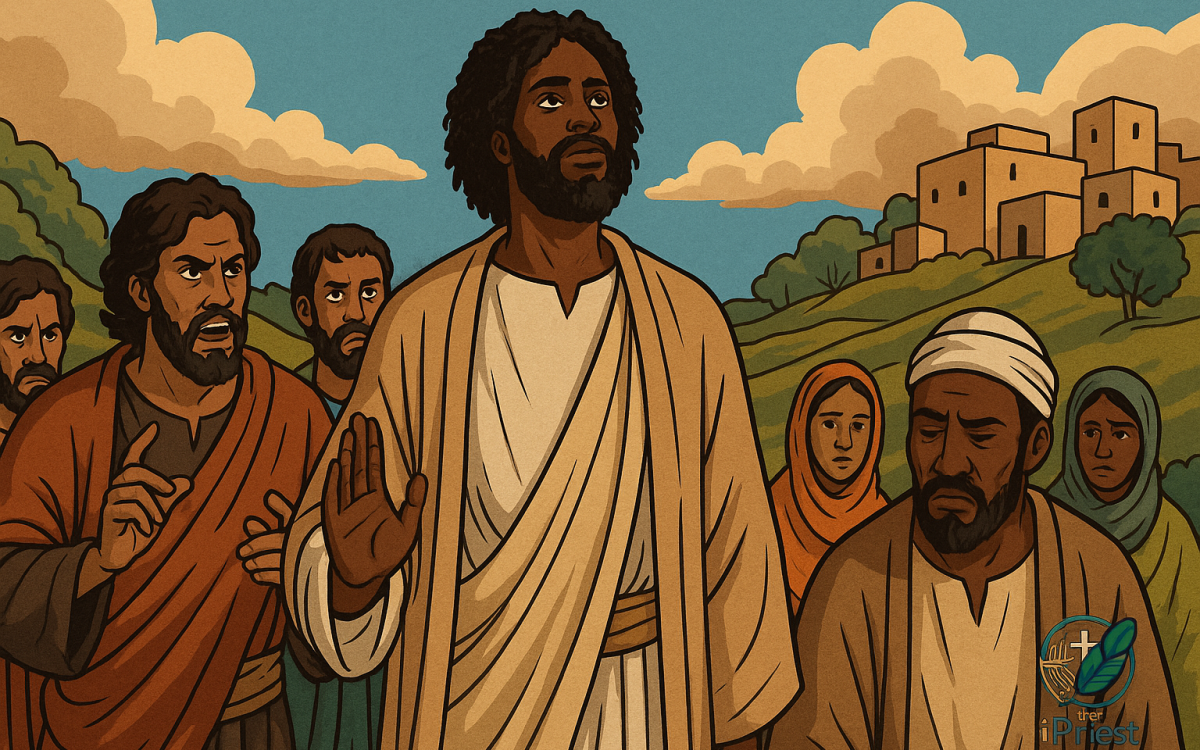Biblical Context – Jesus Sets His Face Toward Jerusalem
The Gospel of Luke tells us that “when the days drew near for him to be taken up, Jesus set his face to go to Jerusalem”(Lk 9:51). This moment is decisive. Jesus knows what awaits him in Jerusalem—betrayal, suffering, and the cross—yet he does not avoid the path. To set his face toward Jerusalem is to embrace his mission of love without compromise.
On the way, Jesus passes through a Samaritan village. The people refuse to welcome him because of the long-standing hostility between Jews and Samaritans. The disciples react with anger, wanting fire to fall from heaven to punish them. But Jesus rebukes them. His journey to Jerusalem will not be one of violence or revenge, but of mercy and steadfast love.
Sociocultural Setting – Samaritans and Jews
In the first century, tensions between Jews and Samaritans were deeply rooted in history, religion, and culture. Samaritans were seen as outsiders, even enemies, by many Jews. The rejection of Jesus by the Samaritan village reflects these broken social bonds.
Yet, by choosing not to retaliate, Jesus breaks the cycle of hostility. He shows that the road to Jerusalem—the road of the Kingdom—is not built on domination or revenge, but on reconciliation. Jesus sets his face toward Jerusalem to reveal that true power is found in mercy.
Social Dynamics – The Disciples’ Reaction
The disciples’ response—asking to call down fire—reflects human instincts when facing rejection: to strike back, to humiliate, to destroy. But Jesus’ rebuke is sharp. His way is not about crushing enemies but about carrying the cross.
Here we see a profound lesson for today’s disciples. Following Christ means resisting the temptation to repay rejection with violence, whether in words, systems, or structures. It means choosing the difficult but liberating path of mercy.
African Wisdom – The Path of Mercy
An African proverb says:
“When the roots are deep, there is no reason to fear the wind.”
Jesus’ roots were deep in the Father’s love. That love gave him the strength to walk toward Jerusalem without being shaken by rejection or hostility. In the same way, our faith must be rooted deeply enough to withstand offense, prejudice, and exclusion.
Another proverb adds:
“The one who forgives ends the quarrel.”
By rebuking his disciples’ thirst for revenge, Jesus ends the quarrel before it begins. He shows that forgiveness, not fire, is the true force of transformation.
A Word for Us Today
In a world where differences of race, tribe, religion, or politics often spark division, Jesus sets his face toward Jerusalem as a sign that love must guide us beyond rejection. The Samaritan village reminds us of communities we too may exclude. The disciples’ anger mirrors our own desire for vengeance. But Jesus’ rebuke calls us back to the way of mercy.
The Gospel challenges us:
- Who are the “Samaritans” we struggle to welcome?
- Where do we call for fire instead of peace?
- How can we root ourselves more deeply in God’s love, so that mercy becomes our natural response?
Prayer
Lord Jesus,
you set your face toward Jerusalem,
choosing mercy instead of revenge.
Give us the courage to walk your path,
to resist cycles of hostility,
and to root ourselves in your love.
May our lives reflect your strength of mercy,
so that peace may grow where violence once reigned.
Amen.
How do you “set your face” toward the hard roads of mercy in your own life? Share your thoughts below and let’s walk together.
-
Facebook
-
Twitter
-
Linkedin
-
Whatsapp






